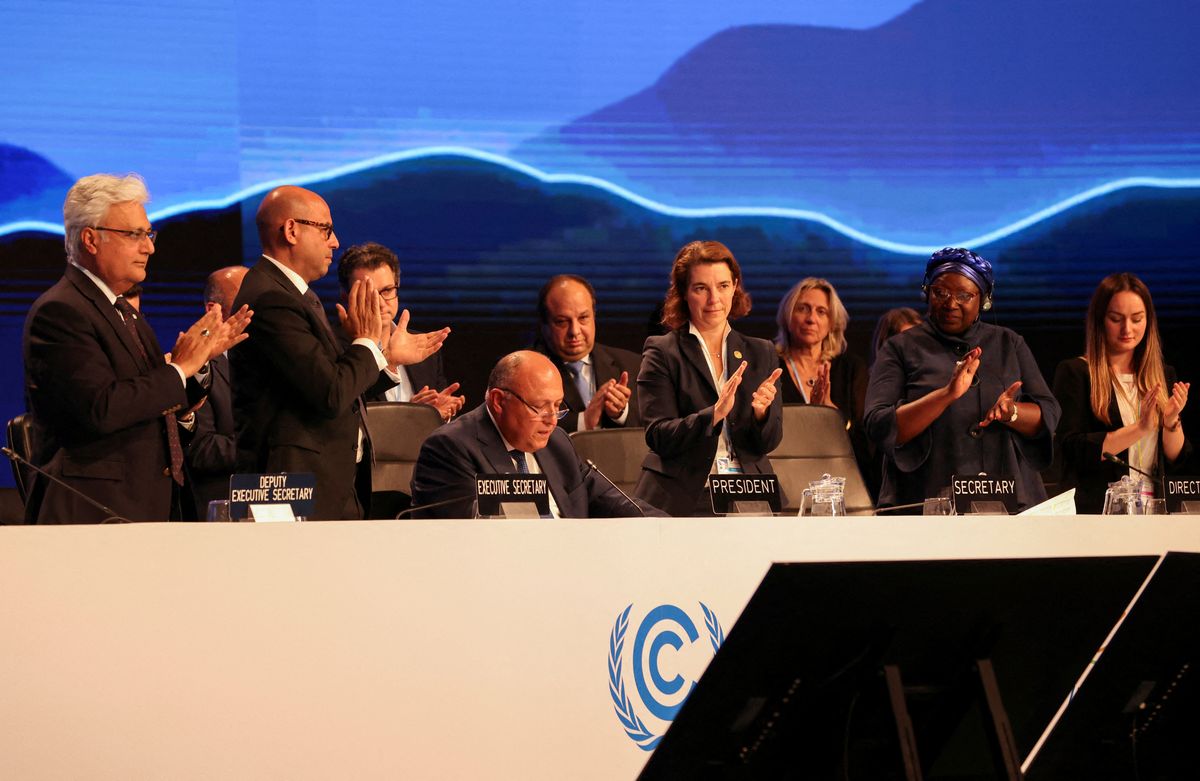COP27 approves breakthrough agreement to offer climate victims financial help
For the last two weeks, representatives of nearly 200 countries have been in talks to resolve global warming at the COP27 summit in Egypt.

A few minutes every morning is all you need.
Stay up to date on the world's Headlines and Human Stories. It's fun, it's factual, it's fluff-free.
For the last two weeks, representatives of nearly 200 countries have been in talks to resolve global warming at the COP27 summit in Egypt. Wealthy and developing countries negotiated for days because "loss and damage" was the summit's main focus. Some have called for reparations to developing countries for losses and damages caused by climate-related disasters. So it might not be surprising that rich countries like the US and some in Europe have pushed back on this idea and opening themselves up to legal liability for their enormous greenhouse gas emissions.
Finally, on Sunday, the summit closed with a last-minute agreement to create a climate fund to help poorer countries cope with climate disasters. This means vulnerable countries will be prioritized, and high emitters like China and India may also need to contribute to the fund. The agreement is a historic breakthrough in global climate politics, considering that the deal was approved with no rejection on the floor and that wealthy and industrialized nations agreed to pay for the pollution they're responsible for. The deal also endorsed the goal of preventing a global temperature increase of 1.5 degrees Celsius, but they weren't able to agree on phasing out fossil fuels.
Key comments:
“The agreements made at COP27 are a win for our entire world,” said Molwyn Joseph, chair of the Alliance of Small Island States. “We have shown those who have felt neglected that we hear you, we see you, and we are giving you the respect and care you deserve.”
“We have struggled for 30 years on this path and today, in Sharm El-Sheikh, this journey has achieved its first positive milestone,” said Pakistan Climate Minister Sherry Rehman. “The establishment of a fund is not about dispensing charity. It is clearly a down-payment on the longer investment in our joint futures.”
“This loss and damage fund will be a lifeline for poor families whose houses are destroyed, farmers whose fields are ruined, and islanders forced from their ancestral homes,” said Ani Dasgupta, World Resources Institute CEO “At the same time, developing countries are leaving Egypt without clear assurances about how the loss and damage fund will be overseen.”
“By taking this step in solidarity with climate-vulnerable countries, the US and other rich countries have begun to restore the trust and credibility necessary for nations to tackle this global challenge together,” said Rachel Cleetus, policy director for the climate and energy program at the US non-profit Union of Concerned Scientists.




Comments ()